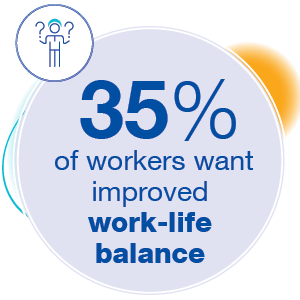Access salary survey data for roles in industrial operations
As the demand for skilled industrial and commercial professionals rises across engineering and manufacturing, procurement and supply chain, as well as logistics, we understand the importance of making the right hire the first-time round. Our latest market intel reveals that salary is still king when it comes to attracting talent.
Simply complete the form below to unlock the opportunity to attract and recruit skilled candidates coming onto the market.
Our 2024 Salary Guide offers comprehensive benchmarks, spanning from new hires to Directors, empowering you to confidently benchmark for a competitive edge.
Our Page Pulse survey revealed what workers in the Engineering, Manufacturing, Procurement & Supply Chain, and Logistics sectors are looking for in 2024:



Are you planning to hire this year?
Our recent Talent Trends data revealed:
- In engineering and manufacturing, 43% cite salary as the driving force behind looking for a new role.
- In procurement, supply chain, and logistics, 54% are actively looking for new opportunities, giving salary as their main reason for accepting or applying for a new role.
Our 2024 Salary Guide for Engineering, Manufacturing, Procurement & Supply Chain, and Logistics, provides salary benchmarking for all roles across the landscape as well as industry trends and exclusive insights that will help inform your hiring strategy and keep your business competitive in the year ahead. Unlock exclusive insights into:
- The most up-to-date salary benchmarking in your region
- In-demand roles in your sector
- Hiring trends
Download your salary guide
Fill out the form below and you will receive your copy by email shortly.
Our expertise
FAQs for employers


